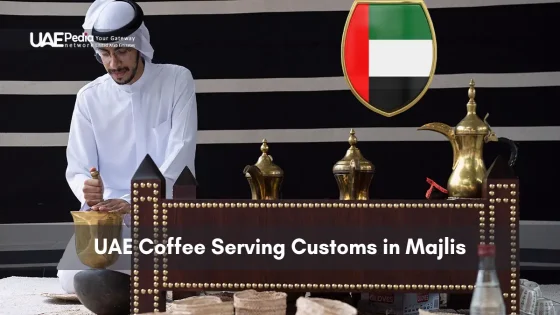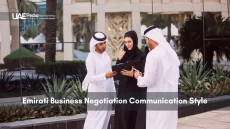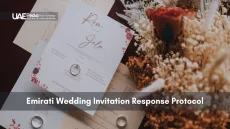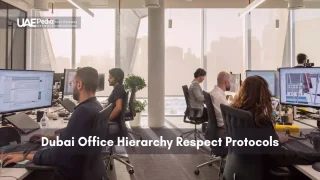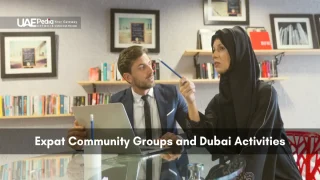Did you know offering coffee in the UAE isn’t just a gesture—it’s a ritual steeped in centuries of meaning? This small act reveals a bigger truth: here, welcoming others is a language of its own, blending heritage with everyday life.
Hospitality here isn’t about grand gestures. It’s a quiet promise of respect—a shared understanding between those who welcome and those who accept. Rooted in Bedouin traditions and Islamic values, this bond thrives in modern cities and desert gatherings alike.
Think of it as a dance. Generosity flows freely, but there’s an art to honoring boundaries. From the scent of cardamom-infused gahwa to the way conversations unfold in a majlis, every detail carries weight. These customs aren’t relics—they’re alive, adapting to today’s rhythms without losing their soul.
So what makes this cultural exchange tick? We’ll unpack how traditions shape connections, why rituals like coffee ceremonies matter, and how mutual respect turns brief encounters into lasting bonds. Here’s what you’ll discover:
- How historical roots influence modern acts of kindness
- The symbolic role of food, drink, and shared spaces
- Practical ways to navigate these customs with confidence
Understanding Emirati Hospitality: A Cultural Overview
In the heart of the desert, sharing water was once a matter of survival—today, that instinct lives on as a cornerstone of connection. This legacy isn’t locked in history books. You’ll taste it in the first sip of gahwa, feel it in the shade of a woven tent, and hear it in stories swapped under starlight.
Historical Roots and Traditional Practices
Centuries ago, Bedouin tribes turned scarcity into an art of giving. Offering shelter to travelers wasn’t optional—it was essential for survival in harsh landscapes. These acts evolved into rituals: pouring coffee from brass dallahs, arranging dates in concentric circles, and creating majlis spaces where strangers become kin.
Islamic Influences on Hospitality
“Whoever believes in Allah should honor their guest,” echoes a teaching central to local values. Generosity here intertwines with faith—a sacred duty rather than mere politeness. Homes open freely, meals stretch to feed unexpected visitors, and conversations linger long after plates are cleared.
Modern cities still pulse with these rhythms. Skyscrapers might replace sand dunes, but the ethos remains: kindness as currency, shared moments as bridges between past and present. It’s how a simple tray of sweets can speak volumes about belonging.
The Bedouin Origins of Emirati Traditions
The desert teaches hard lessons—how to read shifting sands, where to find hidden springs. But its greatest lesson? Survival depends on sharing. Centuries of navigating arid landscapes forged customs that still shape social codes today.
Survival and Generosity in the Desert
Imagine temperatures hitting 122°F with no convenience stores in sight. Bedouin clans thrived by treating strangers like kin—offering shade, water, and dates to travelers. These weren’t courtesies. They were lifelines.
Travelers knew to follow camel tracks to tents where hosts would serve gahwa without questions. This unspoken rulebook turned scarcity into solidarity. What began as necessity became cultural DNA—you can still see it when locals insist on paying for your taxi.
Fostering Community Bonds
Desert life demanded teamwork. Families pooled resources during droughts. Neighbors became emergency contacts. This “we’re all in it together” mindset birthed gatherings where stories swapped under stars mattered as much as shared meals.
Today’s majlis seating arrangements? Direct descendants of those circles where elders settled disputes. Generosity remains a social glue—whether inviting coworkers for Friday feasts or helping newcomers navigate bureaucracy. As one Bedouin proverb puts it: “The tent’s shade stretches farthest when others need it.”
Exploring Emirati Guest Host Reciprocal Obligations in Daily Life
Ever notice how a simple “Marhaba” opens doors here? This everyday greeting sets the tone for interactions where unspoken cultural codes shape connections. From shared meals to casual chats, mutual consideration weaves through modern routines like threads in a traditional sadu weave.
Customs That Define Daily Interactions
Morning coffee runs reveal subtle rules. When someone offers gahwa, using your right hand to accept isn’t just polite—it’s a nod to tradition. Locals often mirror this gesture when passing documents or shaking hands, creating a rhythm of silent understanding.
| Action | Meaning | Modern Adaptation |
|---|---|---|
| Offering dates first | Sign of welcome | Sharing snacks at work meetings |
| Standing when elders enter | Showing respect | Greeting senior colleagues warmly |
| Declining food initially | Allowing host to insist | Polite refusals before accepting favors |
Conversations follow their own dance. Asking about family before business matters. Pausing to let others speak. These patterns create what residents call “the Abu Dhabi slow-down”—a deliberate pace that values connection over haste.
Neighborhoods thrive on small acts. Borrowing sugar becomes a bridge to friendship. Holding elevators turns strangers into temporary companions. As one Dubai resident puts it: “Our buildings reach the clouds, but our roots stay in the sand—always ready to share shade.”
Timeless Welcome Rituals: Arabic Coffee and Dates
You know you’re truly welcomed here when a steaming brass pot appears—its earthy aroma mingling with the honeyed sweetness of dates. This pairing isn’t snack time. It’s a silent language of belonging, perfected over generations.
The Ritual of Arabic Coffee
Picture this: a host pours gahwa from arm’s height, creating a frothy cascade. This isn’t showmanship. The technique cools the brew while aerating it—a practical touch turned art form. Guests sip from handleless cups, their right hands cradling the warmth.
Refills come quick. An empty cup signals desire for more conversation, not just caffeine. “Three sips minimum,” locals whisper—a nod to patience and presence. The ritual’s rhythm teaches newcomers: here, time bends to connection.
Symbolism of Dates in Hospitality
That glossy date on your plate? It’s desert gold. Historically, these fruits sustained travelers—today, they symbolize life’s sweetness shared freely. Offered first before coffee, they balance bitter notes with natural sugar, mirroring hospitality’s blend of warmth and practicality.
Arranged in concentric circles or piled high on silver trays, dates whisper quiet truths. Their presence says: “You’re safe here. Rest. Eat.” No wonder they’re staples at everything from business meetings to UAE holiday gatherings.
Together, coffee and dates create a dance of contrasts—bitter and sweet, heat and softness. They’re more than refreshments. They’re keys to understanding a culture where generosity flows as freely as cardamom-infused brew. Next, we’ll explore how these rituals ripple through other aspects of daily life.
The Majlis: Heart of Emirati Social Life
Ever walked into a room that instantly makes you feel both welcome and curious? That’s the magic of the majlis—a space where architecture and intention merge to spark connection. More than just cushions on the floor, it’s society’s living room, designed to dissolve barriers between generations and newcomers alike.
Where Design Meets Purpose
Traditional majlis areas follow an unspoken blueprint. Low seating encourages eye contact. Open layouts let conversations flow. Intricate wooden carvings or woven palm fronds often adorn walls—artistry that whispers “this matters” without shouting.
| Traditional Element | Modern Adaptation | Cultural Significance |
|---|---|---|
| Floor cushions | Modular sofas | Equal seating for all |
| Central incense burner | Air purifiers | Creating welcoming scents |
| Single entrance | Open archways | Symbolic accessibility |
Conversations That Shape Culture
Here’s where customs come alive. Elders share folktales while kids listen. Business deals get sealed over gahwa. One Dubai architect told me: “Our best ideas? Born in my grandfather’s majlis during Friday gatherings.”
Etiquette rules are subtle but vital. Gifts pass hand-to-hand—always the right one. Compliments flow freely, but boastfulness fades. It’s where a teenager might debate climate solutions with a sheikh, both leaning forward on embroidered pillows.
Last Ramadan, I watched a host discreetly refill a visitor’s cup three times—a silent nudge to stay longer. That’s hospitality coded into action: space designed to say “you belong,” long before words do.
Embracing Etiquette and Modesty in Emirati Society
What you wear here speaks before you do—a silent language of cultural fluency. In a land where tradition threads through modern life, understanding these unspoken codes turns observers into respectful participants.
Appropriate Dress and Behavior
Think of clothing as your first handshake. Loose-fitting attire isn’t just practical for the heat—it signals awareness of local values. Women often pair flowy abayas with vibrant headscarves, while men favor crisp kanduras. Visitors blend in by avoiding sheer fabrics or shorts in public spaces.
Behavior follows similar rhythms. Public displays of affection fade in favor of warm handshakes. Loud voices soften to match the desert’s quiet dignity. As one Dubai stylist advises: “Dress like you’re meeting someone’s grandmother—elegant, covered, ready to share tea.”
Respectful Gestures in Social Gatherings
Watch any greeting here, and you’ll spot a subtle detail: the right hand extended first. This custom, rooted in historical hygiene practices, now symbolizes trust. Use it when passing items, shaking hands, or accepting that third cup of gahwa.
Social gatherings thrive on these nuances:
- Removing shoes before entering homes
- Standing when elders arrive
- Declining food once before accepting
These gestures weave respect into daily life. They’re not rigid rules but shared rhythms—like adjusting your pace to walk beside someone rather than ahead. Master them, and you’ll find doors opening wider, conversations deepening, and friendships flourishing under the UAE sun.
Savoring Culinary Traditions and Shared Meals
Ever catch the scent of saffron and cardamom wafting through a neighborhood? That’s your invitation to a cultural feast where every dish tells a story. Here, meals transform into living archives—preserving flavors passed down through generations while stitching communities tighter.
Signature Dishes and Communal Dining
Machboos arrives steaming—golden rice cradling tender meat, spiced with loomi (dried lime). Nearby, creamy harees simmers, its wheat-and-chicken blend symbolizing comfort. These aren’t recipes. They’re edible heirlooms served on vast platters meant for reaching across.
Families gather around low tables, fingers diving into shared portions. “Eating alone?” a Dubai chef laughs. “That’s like clapping with one hand.” This style isn’t just practical—it’s philosophy. Passing bread becomes trust-building. Sharing the last date? A silent promise: “There’s always enough.”
Dining Etiquette in Emirati Homes
Before the feast begins, hosts offer rosewater for handwashing—a ritual blending hygiene with grace. Meals unfold right-handed, left palms resting politely. Conversations flow between bites, elders weaving tales into the hum of satisfied chewing.
Three unwritten rules shape every gathering:
- Sample every dish—declining hints disrespect
- Compliment the cook profusely (but not the decor)
- Leave a bite on your plate—signaling abundance
As dates reappear with coffee, you realize: these meals aren’t about food. They’re time machines. Each spice blend carries Bedouin resilience. Every shared platter whispers: “You’re family now.” And isn’t that the tastiest tradition of all?
The Art of Gift-Giving in Emirati Culture
Ever received a date basket wrapped in palm fronds? That’s your signal—you’ve been welcomed into the inner circle. Here, presents aren’t transactions. They’re poetry written in wrapping paper, each choice revealing volumes about relationships and values.
Thoughtful Tokens and Their Meanings
Selecting gifts here is like composing a haiku—every detail matters. Traditional incense burners whisper “your home deserves beauty”. Silver-framed Arabic calligraphy says “we share sacred bonds”. Even simple choices carry weight:
| Traditional Gift | Modern Equivalent | Unspoken Message |
|---|---|---|
| Oud perfume | Designer fragrances | “May your presence linger” |
| Hand-painted ceramics | Artisanal coffee mugs | “Treasure our shared moments” |
| Dried dates basket | Gourmet chocolate box | “Sweetness follows you” |
Exchange Customs Among Hosts and Visitors
Watch how locals pass parcels—right hand supporting the left. This gesture roots in ancient practices where warriors showed empty palms to prove peaceful intent. Today, it says: “I offer this freely.”
Refusing first? Expected. Insisting twice? Mandatory. A Dubai business owner shares: “When my team gives project gifts, we present them sideways—never directly face-to-face. It softens the moment.”
These rituals weave respect into daily life. From workplace token exchanges to family celebrations, each carefully wrapped package becomes a bridge—connecting past and present, strangers and friends.
Building Social Bonds and Upholding Family Values
Friday gatherings aren’t just family time—they’re where society’s heartbeat syncs across generations. In homes from Abu Dhabi’s high-rises to Al Ain’s palm-shaded courtyards, kinship forms the glue holding communities together. This isn’t about formal reunions. It’s the unplanned moments—a cousin fixing your car, an aunt dropping off homemade luqaimat dumplings—that weave tight social nets.
Strengthening Family Ties
Multi-generational living remains common, with grandparents teaching toddlers Bedouin poetry while parents share career advice. Weekly meals become storytelling sessions where elders pass down wisdom like heirlooms. “My kids learn history through my father’s sandstorm survival tales,” says a Dubai teacher. “That’s how values stick—through shared plates and laughter.”
Responsibilities flow both ways. Young professionals support aging relatives, while seniors mentor youth in traditional crafts. This cycle creates what locals call “roots and wings”—preserving heritage while preparing new generations to thrive.
Community Support and Mutual Respect
Neighborhoods buzz with collective care. Residents organize park cleanups, swap babysitting duties, and pool resources during emergencies. Ramadan sees streets transform into open-air feasts where everyone’s invited. A Sharjah resident notes: “We know whose child needs math help, who’s recovering from surgery. It’s like having 100 extended families.”
This ethos spills into public spaces. Community gardens bloom in urban lots. Mosques host free language classes. Even skyscraper lobbies often have “help yourself” shelves for book exchanges or spare umbrellas. Through these small acts, cities become villages—connected by shared purpose rather than shared blood.
“Our strength? It’s not oil or towers. It’s knowing the person next to you has your back.”
Modern Perspectives on Preserving Traditional Practices
Picture this: smartphone alerts ping alongside the rhythmic clink of coffee cups. This isn’t cultural whiplash—it’s today’s UAE, where heritage and innovation coexist like palm trees beside glass towers. Communities here aren’t choosing between past and future. They’re weaving them together.
Balancing Heritage with Innovation
Young designers reimagine sadu weaving patterns in neon-lit malls. Chefs fuse camel milk into latte art. Even the humble majlis gets a tech upgrade—digital guestbooks now sit beside incense burners. “We’re not erasing traditions,” says a Dubai cultural guide. “We’re giving them new tools to thrive.”
Families face modern challenges. How do you teach pearl-diving history to TikTok teens? One solution: interactive museum exhibits where augmented reality reveals Bedouin navigation secrets. Schools blend Arabic calligraphy lessons with coding classes. As recent studies show, this fusion strengthens cultural identity rather than diluting it.
Globalization brings tests. Fast food competes with home-cooked machboos. Yet local food trucks answer by serving camel burgers in date-sweetened buns. Travel trends push boundaries too—luxury desert camps now offer stargazing apps alongside traditional storytelling. “Visitors want authenticity,” notes a tour operator. “But they also crave Instagram-worthy moments.”
Success stories abound. Heritage festivals attract global crowds. Artisans use 3D printers to recreate ancient pottery designs. Even etiquette evolves: handwritten thank-you notes now arrive via drone delivery. These adaptations prove traditions aren’t fragile relics—they’re living practices shaped by each generation.
From adventure tourism that respects desert ecosystems to AI-translated folktales, the UAE’s cultural heartbeat stays strong. Values like respect and community endure, dressed in modern garb. As one grandmother quipped while video-calling her grandson: “My coffee pot’s older than your iPhone—but both keep us connected.”
Navigating Local Customs and Legal Guidelines for Visitors
Walking through Dubai’s spice-scented souks or Abu Dhabi’s gleaming malls requires more than a map—it demands cultural fluency. While the UAE welcomes millions annually, blending in means knowing both written rules and silent social codes. Let’s decode the essentials for seamless travels.
Understanding Local Laws in the UAE
Public conduct here balances modern freedoms with traditional values. Alcohol consumption? Only in licensed venues. Photography? Avoid snapping people without consent—especially government buildings. During Ramadan, eating/drinking in public daylight hours is prohibited, even for non-Muslims.
| Do | Don’t | Why It Matters |
|---|---|---|
| Carry ID | Display affection publicly | Legal requirement vs. cultural norms |
| Dress modestly | Use left hand for exchanges | Respect and historical hygiene practices |
| Check medication legality | Post critical content online | Strict drug laws and cybercrime regulations |
Practicing Respectful Public Etiquette
Your right hand becomes your social MVP here. Use it for handshakes, accepting gahwa, or passing documents. Women should pack scarves for mosque visits—shoulders/knees covered always. Loud arguments? Save them for private spaces; discretion is prized.
“Visitors who mirror local manners find doors open wider—literally. A little effort shows you value our way of life.”
Greet Emiratis with “As-salamu alaykum” (Peace be upon you) rather than hugs. When dining, wait to be seated—hosts often arrange guests by age or status. Public transport? Skip eating/drinking on metro systems to avoid fines.
Smart travelers blend curiosity with caution. Research prayer times (stores close briefly), avoid pointing feet at people, and always remove sunglasses during greetings. As one expat blogger notes: “Respect here isn’t rigid—it’s reciprocal.”
Travel Tips for an Authentic UAE Experience
Ever wondered why a simple handshake here feels like a silent conversation? Your journey through the UAE becomes richer when you sync with its unspoken rhythms. Let’s unpack how to move through markets, homes, and public spaces like someone who gets it.
Engagement Do’s and Don’ts for Visitors
Start with your right palm—it’s your social passport. Use it to accept dates, exchange business cards, or shake hands. When offered Arabic coffee, cradle the cup lightly. Three sips? Perfect. Declining outright? Not an option. “Refuse once, accept twice” is the golden rule for invitations.
Dress like you’re meeting royalty—shoulders covered, knees concealed. Flowy fabrics beat tight fits. At beaches, save swimwear for resort pools. Pack a scarf for mosque visits—it’s your key to stunning architecture like Sheikh Zayed Grand Mosque.
Greet locals with “As-salamu alaykum” (Peace be upon you). Skip hugs unless initiated. In homes, remove shoes and compliment the host’s decor sparingly. Food etiquette matters: taste every dish, leave a bite on your plate, and never eat with your left hand.
| Do | Don’t | Why |
|---|---|---|
| Research prayer times | Public displays of affection | Shops close briefly; respect cultural norms |
| Carry cash for souks | Point feet at people | Markets prefer dirhams; soles offend |
| Ask before photographing | Discuss sensitive topics | Privacy valued; avoid politics/religion |
Stay savvy during holidays—check UAE holiday safety guides for event-specific tips. A Dubai tour guide advises: “Visitors who mirror local manners unlock hidden gems—like sunset desert feasts or family-run spice shops.”
Mistakes happen. Spill coffee? A warm smile and “Al afw” (Excuse me) smooths most slips. Remember: curiosity trumps perfection here. The goal isn’t to blend in—it’s to connect.
Reflections on Emirati Hospitality and Cultural Legacy
Have you ever noticed how the warmth of a shared moment can outlast the desert sun? The UAE’s cultural DNA thrives through daily acts of connection—steaming gahwa poured for neighbors, elders sharing wisdom in airy majlis spaces, families gathering over spice-laden feasts. These rituals aren’t frozen in time. They pulse through skyscrapers and sand dunes alike, adapting while keeping their soul.
At its core, this legacy revolves around silent agreements. Generosity meets gratitude. Openness honors boundaries. From Bedouin survival tactics to today’s urban exchanges, mutual respect remains the glue. It’s why a date’s sweetness or coffee’s bitterness still carry layers of meaning, as explored in our deep dive into the cultural significance of generosity.
Modern life adds new verses to old songs. Tech-savvy youth blend tradition with innovation—hosting virtual gatherings while keeping incense burners lit. Yet the heartbeat stays steady: kindness as compass, community as anchor. Visitors who embrace these rhythms don’t just observe culture—they become part of its story.
So here’s your invitation. Sip slowly. Listen closely. Let shared moments in sunlit courtyards or bustling markets rewrite what you thought hospitality meant. Because here, every “welcome” is a bridge—and crossing it might just change how you see the world.
Dates symbolize generosity and survival from Bedouin times, while Arabic coffee (gahwa) represents warmth and connection. Offering them first is a timeless gesture of respect—like saying, “You’re safe here.” Skip this, and you’ll miss the heartbeat of Emirati hospitality.
Modesty is key. Think loose, breathable fabrics that cover shoulders and knees. Women might consider a lightweight scarf. Dressing respectfully isn’t just polite—it shows you value their traditions. Pro tip: Notice the kandura (men’s robe) and abaya (women’s cloak)? They’re designed for comfort in desert heat!
The majlis—a communal seating area—is where stories flow and bonds form. It’s designed for face-to-face connection, often with cushions on the floor. Sit cross-legged, accept that third cup of coffee, and listen. This space isn’t just physical; it’s where respect and community thrive.
Not expected, but appreciated. Think quality dates, artisanal sweets, or perfumes—avoid alcohol. Present gifts with your right hand or both hands. Remember, it’s the thought that counts here. One traveler swears by bringing saffron from home; it sparked a 2-hour recipe exchange!
Rushing. Meals are leisurely, conversations meander, and refusals (even of coffee) should be gentle. One expat learned the hard way: saying “no thanks” too quickly to a second helping implied the host didn’t provide enough. Smile, pause, and let the moment breathe.
Tech meets tradition daily. You’ll see teens in kanduras scrolling TikTok, or grandmothers video-calling during Ramadan. The core values—family, respect, generosity—remain unshaken, even as Dubai’s skyline evolves. It’s less about “balance” and more about roots growing deeper alongside progress.
Always ask first. Some families love sharing; others prefer privacy. At public heritage sites like Al Shindagha Museum? Snap away! But in homes or majlis settings, follow your host’s lead. A good rule: If you’d hesitate in your grandma’s living room, hesitate here too.


